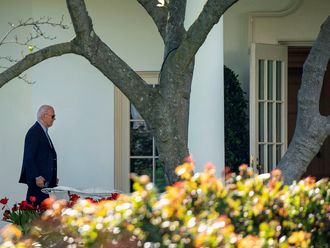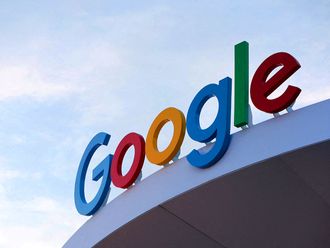Des Moines, Iowa: Iowa Democrats are displaying far less passion for Hillary Clinton than for Sen. Bernie Sanders of Vermont three weeks before the presidential caucuses, creating anxiety inside the Clinton campaign as she scrambles to energise supporters and to court wavering voters.
The enthusiasm gap spilt abundantly into view in recent days, from the cheering crowds and emotional outpourings that greeted Sanders, and in interviews with more than 50 Iowans at campaign stops for both candidates.
Voters have mobbed Sanders at events since Friday, some jumping over chairs to shake his hand or snap a selfie. “Did you get to touch him?” asked one woman who could not get close enough after an event here on Saturday.
“We love you, Bernie! Enough is enough!” Nathan Arentsen, 29, cheered at another event in Des Moines, stamping his feet emphatically.
With a new poll showing Sanders closing within 3 points of her in Iowa, Clinton and her aides have dropped any pretence that they can ignore Sanders or treat him like a gadfly. They have become zealous and combative as they try new ways to undercut his high favorability ratings.
On Monday, Clinton proposed raising the income tax by 4 percentage points for people earning more than $5 million (Dh18.36 million) a year, an idea virtually out of the Sanders playbook. At the same time, she is aggressively challenging Sanders on gun control and health care, undertaking relentless attacks on Sanders that can feel somewhat forced, like portraying him as an ally of the National Rifle Association.
On Tuesday, Clinton even mocked Sanders at one point, imitating his defence for supporting a bill shielding gun manufacturers and dealers from liability. “He says, ‘Well, I’m from Vermont,’” Clinton noted before saying that home-state concerns were not a sufficient explanation.
She is also trying to tap into the popularity of President Barack Obama and former President Bill Clinton after insisting for months that she was not running for a third term for either man.
Clinton advisers said they believed Iowa was a single-digit race and have been warning supporters against complacency, admitting that Sanders’ operation in the state was better financed and organised than they had expected. On Saturday, they began trying to undercut his electability with a television ad casting Clinton as the strongest possible Democratic nominee, even though some polls show Sanders would perform well in matchups against Republicans like Donald Trump and Sen. Ted Cruz of Texas.
An event Monday in Waterloo underscored Clinton’s challenge: About 300 people welcomed her enthusiastically and listened to her diligently, but many of them, still unsure, rebuffed Clinton aides trying to get them to sign “commitment cards” to caucus for her.
“I personally want to find out if she’s trustworthy or not,” said Katie Bailey, 71, of Cedar Falls. “There’s so much untrust. I want to eyeball her.”
A Sanders victory in Iowa would be a shock, given the institutional advantages held by Clinton, a former secretary of state and a favourite of the Iowa Democratic establishment. It would also set off significant momentum for Sanders heading into the February 9 primary in New Hampshire, where he holds a slight lead in the polls.
Several of Clinton’s advisers, speaking on the condition of anonymity to discuss the race candidly, said that they were anxious but not panicking about Iowa and that they believed she would still deliver a victory here.
Still, some advisers said they were torn about whether the campaign would ultimately regret purposely holding small events in Iowa — a strategy Clinton preferred — given Sanders’ ability to continue to turn out and energise huge crowds, which they had not anticipated.
Some members of her Iowa team, however, said they were confident that passion for Clinton was intensifying.
“It’s something that’s growing closer to caucus day,” said Kane Miller, the Clinton campaign’s organising director for Polk County, which includes Des Moines. “This previous weekend was negative degrees, and 80 per cent of people confirmed to volunteer were out knocking on doors. That’s a great measure of enthusiasm.”
Both Sanders and Clinton garnered several rounds of applause on Monday night at the Brown and Black Forum at Drake University here, although the crowd seemed more delighted with Sanders as he denounced a 51 per cent unemployment rate for black men with a high school education and joked that he would consider living in the White House to be public housing.
The warmth for Sanders was notable because of Clinton’s historical popularity among minority voters, particularly African-Americans. She drew cheers for saying she would not use the term “illegal immigrant” and for pledging to help Central American countries stem the violence that people there flee.
A poll published on Tuesday, by Quinnipiac University, found that Sanders had jumped to a lead in Iowa, with 49 per cent to Clinton’s 44 per cent, after trailing her by 11 points in mid-December. The Quinnipiac poll also found that liberal Iowans were the most enthusiastic about the election, and that Sanders was the favourite among these voters. A New York Times/CBS News poll released on Tuesday showed Clinton’s once formidable lead nationally shrinking from 20 points a month ago to 7 points.
The tightened race is revealing a sharp generational divide within the Democratic Party, with primary voters under age 45 favouring Sanders by a roughly 2-1 ratio.
The Clinton campaign still has significant structural advantages in Iowa to help turn out caucus voters. The state’s most popular Democrats have endorsed Clinton, including former Sen. Tom Harkin and former Gov. Tom Vilsack, helping her leverage their political networks. She also has endorsements from several unions and groups like the Planned Parenthood Action Fund.












